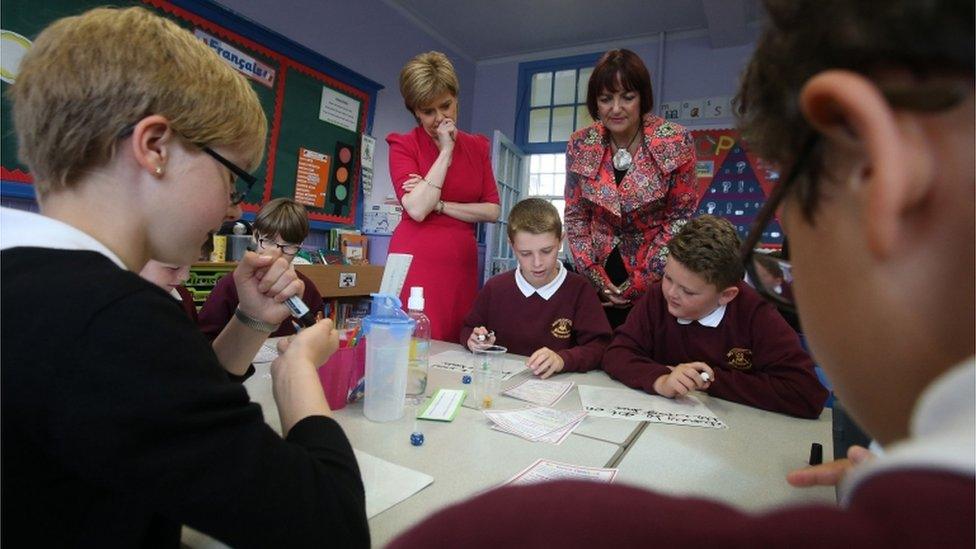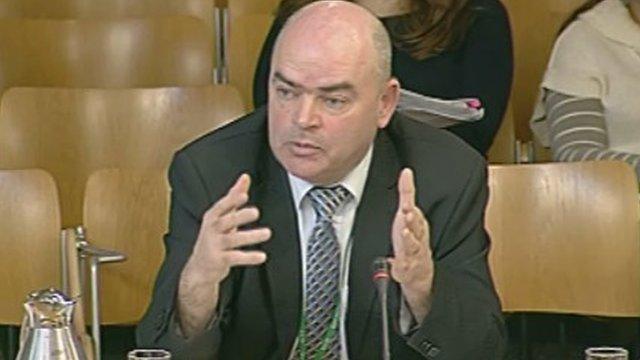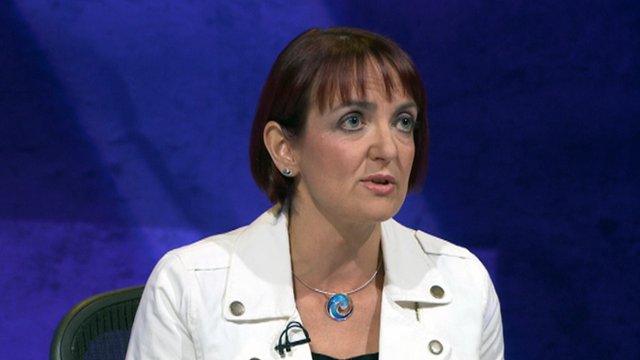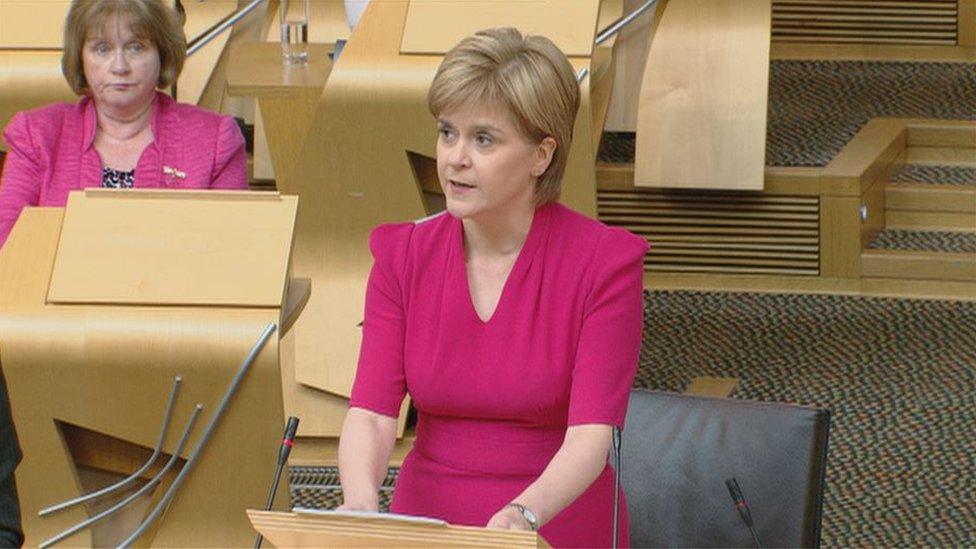Could new testing in Scotland's schools lead to a teacher boycott?
- Published

Scotland's largest teachers' union, the EIS, has warned that Scottish government plans for new assessments in schools are a "damaging, retrograde step". So, could the disagreement lead to a boycott of the tests by teachers?

It's clear the Scottish government will have a real challenge winning over some teachers to the prospect of standardised assessments.
The Scottish government could not have put it more simply last week. It is adamant this will not be the return of "high stakes national testing" and that it will not be judging schools and teachers on the results of these assessments in isolation.
The government wants better data to help drive up the performance of children from less well off backgrounds - one of the First Minister's top priorities and an aim few, if indeed any, teachers would not share.
Yet some teachers clearly do not feel reassured.
They fear they will end up teaching children to pass tests and believe it is inevitable that unofficial league tables will be used by some to judge school or council performance.
Until more details of the tests and exactly what information will be publicly available are announced, it is hard to say just how justified the practical concerns of some teachers are.

What's the current classroom testing system in Scotland?
Thirty out of 32 councils use standardised assessment for primary and lower secondary pupils.
However, they use different systems meaning forming a national picture on attainment is difficult.
About half of Scottish councils use tests devised by the Centre for Evaluation and Monitoring (CEM) which is based at Durham University.

If the new assessments are simply an adaptation, a standardisation, of the different tests currently used by many councils then some of the worries may be alleviated. Similarly if specific data about individual schools is not published then journalists and others would not be able to produce league tables.
However, some teachers clearly have underlying, principled concerns too. These may be harder to allay.
The stakes are potentially very high. This row could lead to one of the most serious disputes in education since devolution.
It is not sabre-rattling to suggest this could ultimately lead to a boycott of the new assessments although, for now, unions would prefer to reach a deal with the government.
'Positive relationship'
Generally speaking, since devolution the unions and the politicians in charge of Scotland - SNP, Labour and Lib Dem - have had a constructive and positive relationship.
Even the concerns unions and many teachers had about the introduction of the National 4 and 5 qualifications and the changes to Highers have to be seen through that prism. The worries were, ultimately, about their implementation - not the principles involved. All sides wanted to make the changes work.
If the government cannot convince some teachers that the standardised assessments will not amount to the national testing they oppose it could face a real battle.
Yet the SNP is not the only party in favour of a form of national assessment: Labour and the Conservatives back that too.
This story could well run.
- Published8 September 2015

- Published8 September 2015

- Published8 September 2015

- Published1 September 2015
